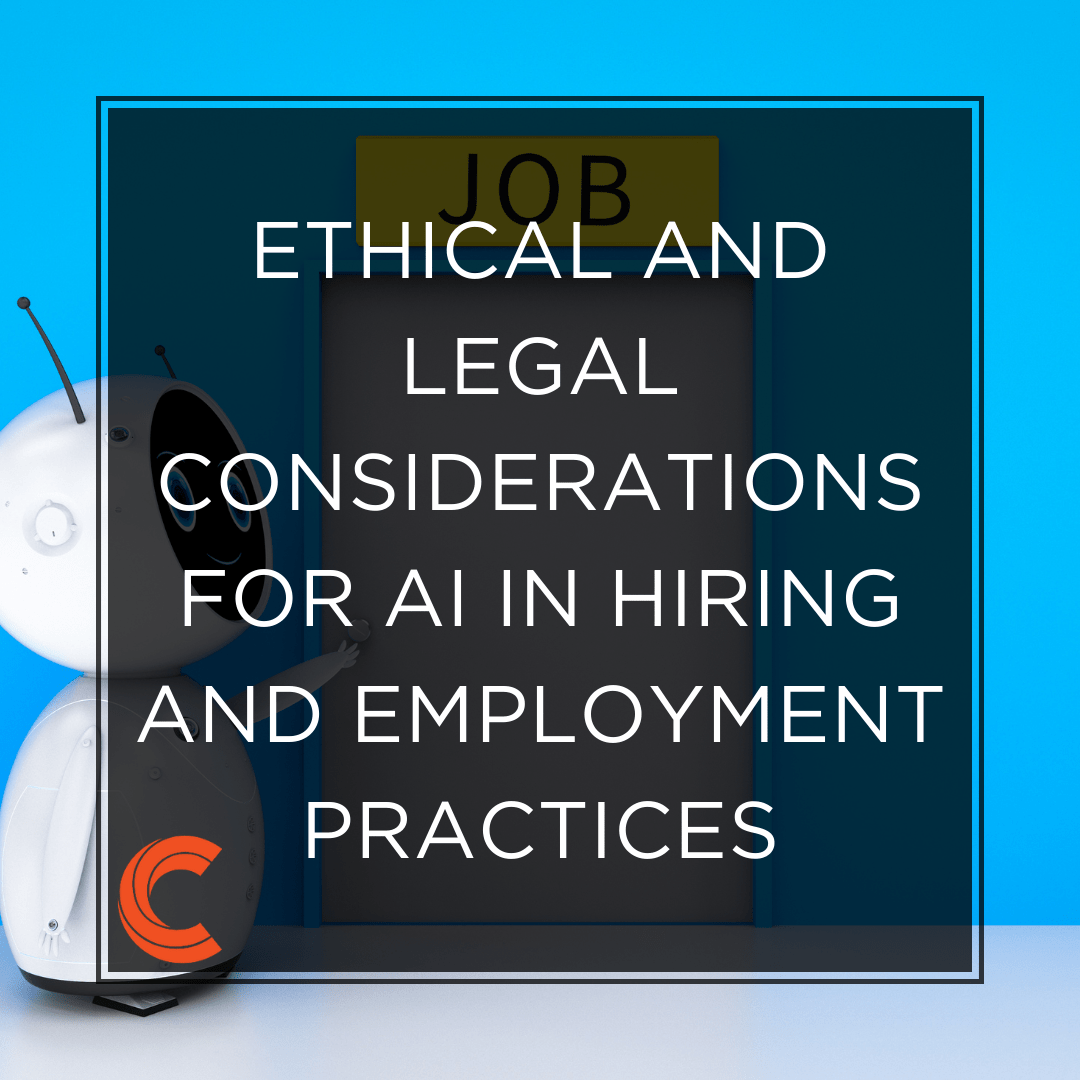Artificial Intelligence (AI) is revolutionizing the hiring process, making it faster and more efficient. However, with this technological advancement comes a host of ethical and legal challenges. Companies using AI in hiring must be aware of these potential issues to ensure fairness and compliance with employment laws.
Understanding AI’s Role in Employment Practices
AI tools are increasingly being used to screen resumes, assess candidates, and even conduct interviews. These tools can analyze vast amounts of data quickly, identifying patterns and making predictions that humans might miss. However, relying solely on AI can lead to significant ethical and legal concerns.
The Ethical and Legal Concerns of AI in Hiring
One of the primary ethical concerns with AI in hiring is bias. AI systems are only as good as the data they are trained on. If the data used to train an AI model is biased, the AI’s decisions will reflect that bias. For example, if a company’s historical hiring data favors a particular demographic, the AI may continue to prefer candidates from that demographic, perpetuating existing inequalities.
Another ethical issue is transparency. AI systems are often complex and operate as “black boxes,” making it difficult to understand how they arrive at decisions. This lack of transparency can lead to mistrust among candidates and even legal challenges.
Legal Risks of Using AI in Employment Practices
The legal risks associated with AI in hiring are significant. Discrimination is a key concern. Under laws such as Title VII of the Civil Rights Act, employers must ensure that their hiring practices do not discriminate based on race, gender, age, or other protected characteristics. If an AI tool disproportionately screens out candidates from a particular group, the company could face legal action.
Another legal risk involves data privacy. AI systems often require large amounts of data to function effectively. Employers must ensure they comply with data protection regulations such as the General Data Protection Regulation (GDPR) and the California Consumer Privacy Act (CCPA) when collecting and processing candidate data.
Mitigating Ethical and Legal Risks
To address these ethical and legal considerations for AI in hiring, companies should take several proactive steps:
1. Conduct Regular Bias Audits
Companies should regularly audit their AI systems to check for bias. This involves analyzing the outcomes produced by the AI and comparing them across different demographic groups. If disparities are found, companies must take corrective action, such as retraining the AI on more balanced data.
2. Ensure Transparency in AI Decision-Making
Transparency is crucial to building trust in AI systems. Companies should strive to make their AI processes as transparent as possible. This might involve using AI tools that provide clear explanations for their decisions or offering candidates insights into how their applications were evaluated.
3. Comply with Legal Standards
Legal compliance is non-negotiable when using AI in hiring. Companies must stay up-to-date with the latest laws and regulations regarding AI and employment. This includes ensuring that their AI tools do not inadvertently discriminate against protected groups and that candidate data is handled in accordance with privacy laws.
4. Seek Ethical and Legal Guidance
Given the complexity of the legal landscape surrounding AI in hiring, it’s wise for companies to seek legal guidance. Carbon Law Group offers expert advice on how to use AI tools in a way that is both fair and compliant with the law. We can help you navigate the complexities of AI in employment, ensuring your practices are legally sound and ethically responsible.
The Importance of Human Oversight
While AI can significantly improve efficiency in hiring, it should not replace human judgment. Human oversight is essential to catch potential errors or biases that AI might miss. Combining AI’s capabilities with human insight ensures a fairer and more balanced hiring process.
Conclusion
AI offers tremendous potential to enhance the hiring process, but it must be used responsibly. By understanding the ethical and legal considerations for AI in hiring, companies can harness the power of AI while mitigating risks. Regular bias audits, transparency, legal compliance, and human oversight are critical components of a responsible AI strategy.
For businesses looking to integrate AI into their hiring practices, it’s crucial to approach the process with both innovation and responsibility in mind. At Carbon Law Group, we provide the guidance you need to use AI in a way that aligns with your legal obligations and ethical values. Contact us today to learn more about how we can assist you in navigating the challenges and opportunities of AI in hiring.





